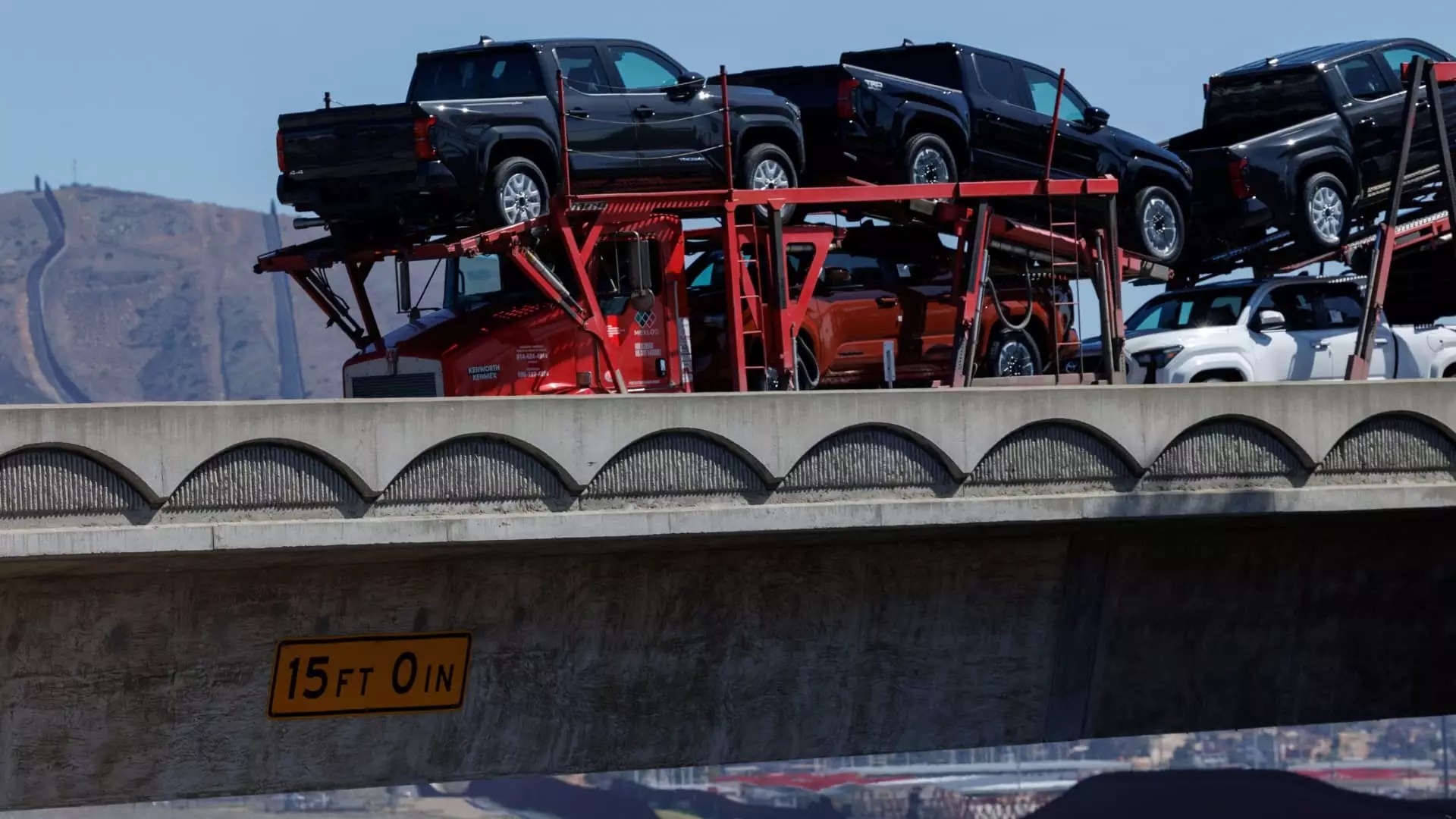Economists and industry analysts often debate the effectiveness of protectionist measures like tariffs, and President Trump’s recent announcement of a 25% tariff on imported vehicles sends a clear message: the idea of safeguarding American industries through such strategies remains pervasive. While the intention to protect American jobs is commendable, these tariffs may inadvertently stifle competition and discourage innovation within the automotive sector. The reality is that limiting foreign competition often engenders complacency among domestic manufacturers. Without the pressure to innovate and improve, American car companies risk stagnation while foreign manufacturers keep pushing the boundaries of technology and efficiency.
The Financial Impact on Consumers
The immediate fallout from Trump’s tariff announcement is the anticipated rise in vehicle prices for American consumers. Analysts predict that imported cars could see an increase of up to $15,000. This dramatic surge is not confined to the high-end luxury market; it will affect the average American in search of an affordable vehicle. With the cost of living continuously on the rise, the last thing consumers need is a significant price hike on essential purchases like cars. This attempt to prioritize locally sourced production may lead to greater economic strain for everyday Americans, who should not be left bearing the brunt of government policy.
Risk to a Complex Supply Chain
The automotive supply chain is notoriously complex, involving numerous international players. The President’s tariffs could disrupt established relationships and processes within this web, leading to unintended negative consequences. Vehicles are assembled from components sourced from an array of countries; the average car comprises parts from 50 to 120 nations. Consequently, tariffs might lead to a slowdown in production as manufacturers scramble to adapt—disrupting supply chains and potentially increasing lead times for customers. This chaos could drive manufacturers to consider offshoring parts production, thereby counteracting the intended benefits of bringing jobs back to U.S. soil.
The “America First” Agenda: Good Politics or Bad Economics?
While advocating for U.S. jobs is an appealing slogan, the consequences of enacting tariffs must be carefully scrutinized. The auto industry is indeed crucial for American jobs, particularly within blue-collar communities, as echoed by the United Auto Workers’ enthusiastic support of the tariffs. However, there’s a thin line between supporting American labor and jeopardizing the industry’s overall growth. True progress requires innovation, and if domestic firms become too reliant on protective measures, they could lose the drive to adapt and evolve, resulting in a stagnated industry.
The Global Economy and America’s Autonomy
In an increasingly interconnected global economy, isolationist policies are growing less viable. Many car companies, including American icons, rely significantly on international markets for both parts and consumer sales. A tariff like Trump’s not only alienates foreign manufacturers but also complicates the international trade landscape, possibly inspiring retaliatory tariffs. As a nation, we must emphasize strategic international relationships rather than approach trade with a fortress mentality; otherwise, we risk becoming isolated in an arena that thrives on collaboration and coexistence.
Disrupting trade relationships may yield short-term benefits, but historical lessons reveal that economies built on isolationism often falter over time. The autonomously fabricated ideal may feel patriotic, but it can transform into a double-edged sword that cuts deeply into the innovation and competitiveness we strive to maintain.
The reluctance to embrace foreign integration while simultaneously reducing tariffs on certain imports will create a paradox that robs both consumers and manufacturers of true autonomy. Instead of focusing solely on domestic protection, a more nuanced approach that fosters collaboration with our trading partners could catalyze advancements across the automotive landscape, benefitting American manufacturers in the long run.


Leave a Reply